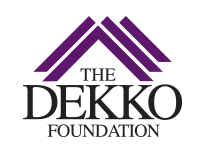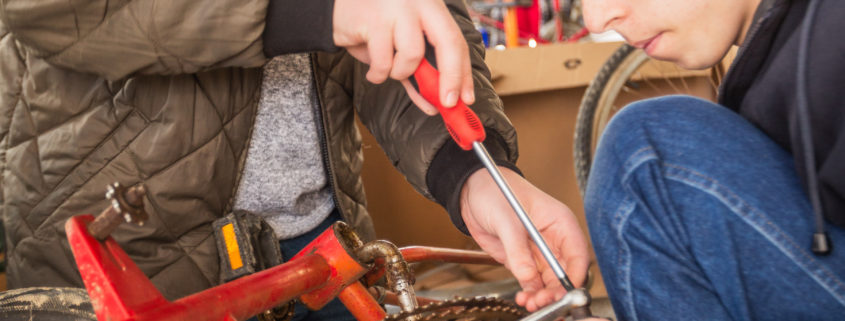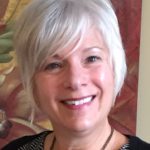One ambitious mission; two unique ways to get there
Most people in this area know the name Dekko Foundation.
A few understand economic freedom as the mission that Chester E. Dekko left us.
We’ve worked with, and supported, many organizations in the communities we serve. They know us, but we recognize the general public may not. We want you to know more of our story.
You might be familiar with our more well-publicized work, where we invest in grant proposals from leaders of schools, nonprofits and communities. We call this strategy responsive grantmaking. Responding to proposals from the communities we serve helps us build strong relationships and gather ideas on ways to achieve our mission.
What fewer people are familiar with, though, is another strategy we use to achieve our mission. We call this approach proactive grantmaking. Through proactive grantmaking, we don’t wait for someone to send us a grant proposal. Instead, we seek out ideas and opportunities to invest in projects we believe will bring us closer to our mission.
Our investment in Oak Farm Montessori School is an example of our proactive approach to grantmaking. We’re often asked about our investment in Oak Farm, so we want to take this opportunity to tell you more about the school, how we believe it enriches northeast Indiana and why we support its work.
Montessori education takes Dekko Foundation closer to founder’s mission
Visitors to Oak Farm Montessori School might be surprised to see toddlers single-handedly prepare and serve a snack for their classmates. Are these little ones superhuman? No. Their teacher simply prepared the classroom environment and then stepped back so the students could learn on their own.
Three-year-olds at Oak Farm spend much of their day engaged in work, or lessons, of their own choice. They also care for their classroom’s pets and houseplants, and make sure that the area is clean for the next day.
Older students care for farm animals and grow their own food along with their academic studies. Oak Farm high schoolers plan, market and operate a bike shop.
“It’s a beautifully dynamic way to teach,” commented Megan O’Sullivan, Oak Farm’s Head of School. “We are nurturing each child’s dignity and growth by preparing stimulating learning environments. Through it all, children emerge confident, competent and hopeful.”
Students at work
Work is central, not just at Oak Farm but also to the Montessori Method overall. This method of teaching emphasizes:
- Independence
- Freedom of movement
- Cooperation
- Education at each child’s unique pace
- Learning in harmony with others.
Maria Montessori was an Italian teacher and physician who lived from 1870-1952. She developed the Montessori Method based on her scientific observations of children from birth through adulthood.
Dr. Montessori’s approach has been used across the world for more than 100 years. Montessori education is based on a view of each child as naturally eager for knowledge and capable of initiating their own learning in a supportive, thoughtfully prepared environment.
Relevance of Montessori education today
Montessori education, with its hands-on educational experiences, has a fundamental and timeless appeal even (and perhaps especially) in today’s age of technology. According to O’Sullivan, “We hear from parents that our school is a safe place—like home—where children gain responsibility, learn from their mistakes and understand that there are consequences to their choices.”
“Montessori students are known for being open-minded and open-hearted individuals,” O’Sullivan continued. “They’re used to working with other people to solve problems.”
“In the past, farm work was the way many children built a work ethic and gained important employment skills,” said Tom Leedy, Dekko Foundation president. “Rural young people learned responsibility by caring for animals. They soaked up economics by buying supplies at the lowest price and helping market crops at the highest price. For the most part, young people are not exposed to farm work anymore. Montessori education is one way that young people can practice and develop those important skills.”
Founding Oak Farm
Oak Farm was founded in the year 2000 by the late Lorene Dekko Salsbery. Phil Salsbery was married to Lorene until her death. He commented, “Lorene saw the tremendous difference that a Montessori education made with our own kids as they attended Three Rivers Montessori (near Fort Wayne). She developed a passion for offering that same type of education for the children of rural families and families of less financial means. She wanted the school to benefit all kids.”
Lorene was the daughter of Chester E. Dekko, who established the Dekko Foundation. Salsbery recalled, “Lorene’s dad had a strong belief in an ancient saying by Epictetus, ‘Only the educated are free.’ She believed in her dad’s mission of fostering economic freedom through education, but she dove in at the opposite end.”
“Lorene wanted the best education. One that would not only provide the three R’s but also help kids to be problem solvers and independent thinkers,” Salsbery continued. “She wanted an education where teachers are there to facilitate and not to direct. To her, Montessori was the answer.”
Using her own time, contacts and talent, Lorene began Oak Farm. She used her own money too. Over time, she transformed a farmhouse, a few outbuildings and acres of bare ground along Lemper Road southeast of Avilla into a groundbreaking educational opportunity for the children of northeast Indiana.
“There is a lot of pride for me in what Lorene did in starting the school,” Salsbery stated. “Lorene’s legacy was her passion for kids and what is best for them.”
Support from the Dekko Foundation
As Oak Farm grew over time (from seven students its first year to 276 today), more people began to take notice of the school and better understand the value this new educational choice offered to the community. The Dekko Foundation board of directors also came to deeply understand the connection between Oak Farm and the mission that Chester E. Dekko set for his foundation.
In the year 2000, the presence of a new rural school that was neither public nor parochial was a significant change for northeast Indiana. And change brings about questions. “This has never been about competition or about public schools vs. private,” Leedy commented. “The Dekko Foundation’s support of Oak Farm is about demonstrating another way to educate children. It is about helping to meet as many of children’s educational needs as possible.”
“Oak Farm teaches young people to think critically and solve problems from a very young age,” Leedy continued. “When you have an individual who can think and solve problems, you have a great basis for our foundation’s mission—economic freedom.”
Salsbery, who also serves as a Dekko Foundation board member, agreed. “Schools like Oak Farm teach in ways that are more holistic,” he said. “By helping children build independence, solve problems and practice critical thinking, you offer such a good foundation for life and work. You can’t teach attitude and character, but you can teach skills. Arming kids with soft skills gives them a leg up in the world of work.”
“The Dekko Foundation’s support helps Oak Farm stay true to the Montessori philosophy,” commented Lauren Moyer, the school’s CFO. “Their support means we don’t have to rely on outside sources or conform to outside expectations. We can stick to the pure Montessori philosophy and offer our students all of its benefits.”
“It’s so interesting to hear what our former students have to say about their time at Oak Farm,” Moyer concluded. “It’s always something like, ‘I miss Oak Farm. But I was SO prepared for what came next.’ ”
Dekko Foundation’s other proactive investments
Through our proactive grantmaking, we don’t wait for someone to send us a grant proposal. Instead, we offer to support work we believe will help us achieve our mission. Oak Farm Montessori School is just one of our foundation’s many proactive investments. Learn more about these investments through the links below:
- Art Dekko: Helps teachers and community arts leaders offer arts experiences for students. https://www.dekkofoundation.org/the-arts/
- Before5: Offers parents practical tips on how to meet their young children’s developmental needs. https://www.dekkofoundation.org/before5/
- Bloom!: Supports early education thought leaders. https://www.dekkofoundation.org/bloom1/
- Civic Responsibility: This is an emerging area of investment for us. We want to help more young people learn to become responsible citizens. https://www.dekkofoundation.org/civic-responsibility/
- Vocational Exploration: We’re advocating that each child should develop a variety of interests and career options. https://www.dekkofoundation.org/vocational-exploration/
- Youth Philanthropy: Helping children gain their first experiences in community involvement, problem solving and philanthropy. https://www.dekkofoundation.org/youthphilanthropy/
If you would like to learn more about our founder, Chester E. Dekko, we encourage you to visit our website and watch a video of his life and his motivation for starting the Dekko Foundation. https://www.dekkofoundation.org/our-founder.
To learn more about the foundation, please don’t hesitate to contact us at 347-1278.

















Leave a Reply
Want to join the discussion?Feel free to contribute!